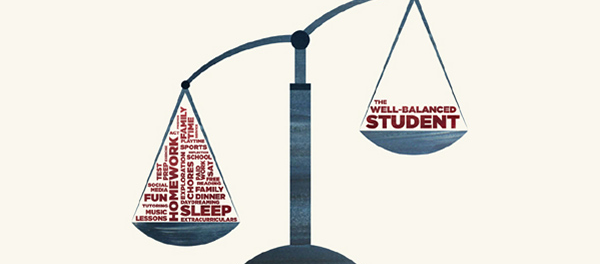Balancing the Teen Life Equation: Sports, Studies, and Social Pressures

4th October 2025
This term has been buzzing with activity—athletics, football, cricket, netball, and of course, the unforgettable Braeburn Sports Festival. Our students have thrown themselves wholeheartedly into these events, showing not only talent but also grit and determination. Alongside these achievements, they continue to shoulder academic expectations while navigating friendships, family life, and the ever-present pull of gadgets and screens.
It is no surprise, then, that many of our students feel stretched. Adolescence is already a season of rapid change: bodies are growing, hormones are shifting, and brains are still developing. Add the demands of a packed schedule, and balance can feel elusive.
So, how can we support our teens to thrive without burning out?
1. The Power of Routine
Teenagers benefit greatly from structure. A predictable routine that balances study, sports, rest, and socializing provides stability. At home, we can support this by encouraging consistency—regular mealtimes, set bedtimes, and even designated “unplugged” hours.
2. The Gift of Sleep
Sleep is often the first casualty of busy schedules. Yet, teenagers need at least eight hours of quality rest each night. Adequate sleep supports concentration, emotional regulation, and even athletic performance. Simple habits like dimming lights before bed and limiting gadget use an hour before sleep can make a big difference.
3. Nutrition as Fuel
Busy teens need more than quick snacks to sustain them. Balanced meals rich in protein, fruits, vegetables, and whole grains keep energy levels steady, while hydration is equally vital. Our role here is central—providing nutritious lunches (something our school lunch program excels at), offering healthy after-school snacks, and ensuring water bottles are always topped up.
4. Emotional Check-Ins
Beneath the surface, many teens wrestle with pressures they may not voice. Short daily check-ins—“How was your day?” or “What felt hard today?”—can open doors for conversation. Listening without immediately jumping in to solve the problem offers them the safe space they crave.
5. The Balance Mindset
Balance isn’t about doing everything perfectly—it’s about knowing when to push and when to pause. A tough training session may call for an early night. A challenging exam week might mean stepping back from social events. When we model this kind of balance as adults, we show them that self-care is not weakness but strength.
As school nurses, we are here to support students not only when they are unwell, but also as they learn to care for their growing bodies and minds. Together—parents, teachers, and the school health team—we can help our teens enjoy these vibrant years while building the foundation for lifelong well-being.
Pauline Muthee
School Nurse (High School)








